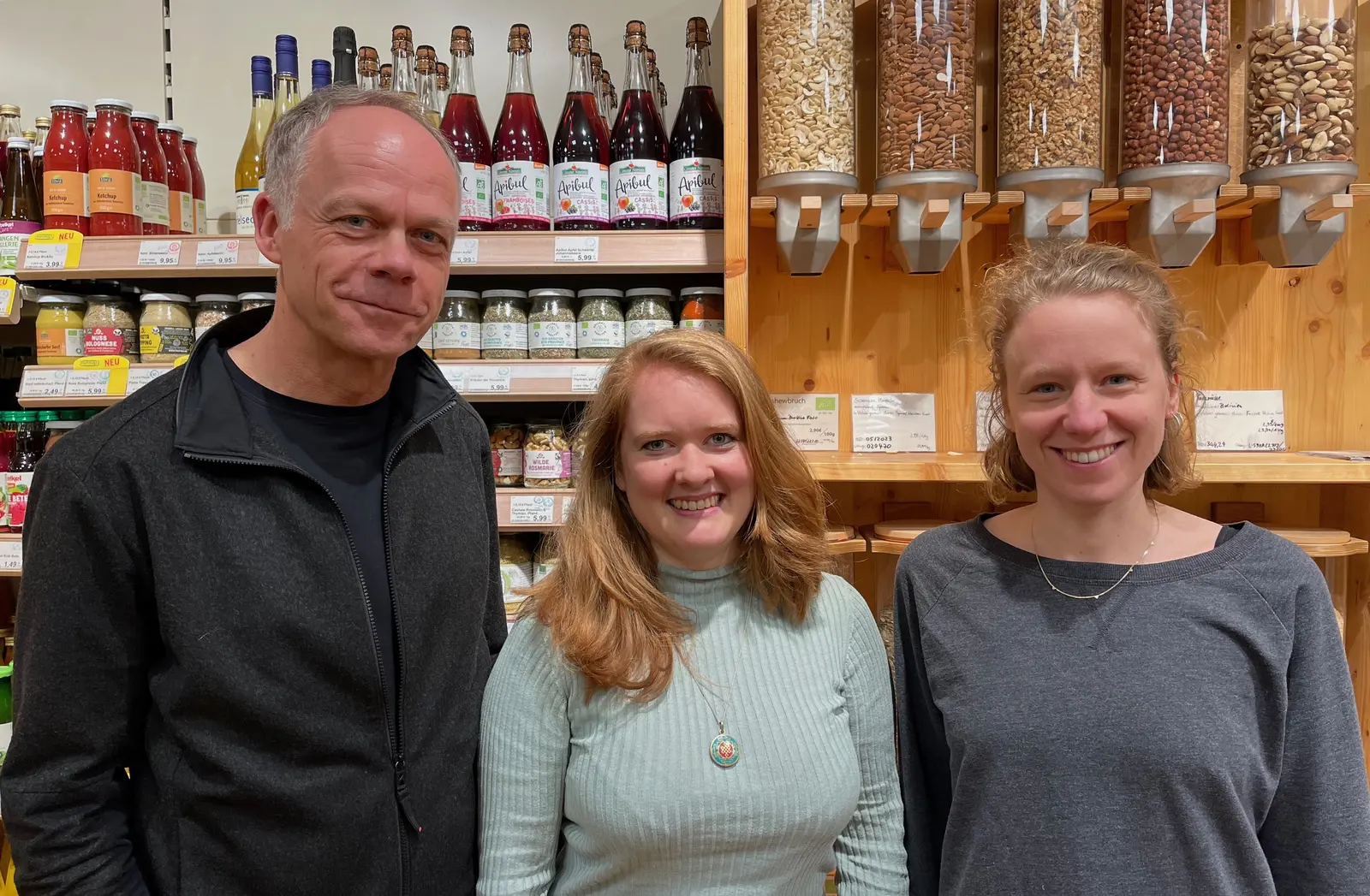Reusable packaging is gaining momentum - advice and networking centre for packaging reduction
The topic of reusable packaging has taken on new relevance with the introduction of the reusable packaging obligation in the to-go sector this year. Catering and delivery services are obliged to offer their customers a reusable alternative to disposable plastic packaging, both for consumption on site and for takeaway food and drinks. The "Advisory and Networking Centre for Packaging Reduction in Brandenburg" (Beratungs- und Vernetzungsstelle Verpackungsreduktion in Brandenburg, BVVB) at the University for Sustainable Development in Eberswalde, which has been funded by the environment department since April 2021, offers advice on implementing the reusable packaging obligation.

The aim of the advice and networking centre is to establish reusable solutions along the value chain in the food sector. The BVVB is run by members of the Packaging Reduction Working Group at the Department of Sustainable Business Management in the Agricultural and Food Industry at Eberswalde University for Sustainable Development (HNEE). Since 2021, important levers for the switch to reusable solutions have already been identified, valuable contacts established and measures developed. With the approved double budget, the project is now entering its second term and is available to all stakeholders, in particular for advice on the implementation of the reusable supply obligation.
Environment Minister Axel Vogel: "Since the beginning of the year, consumers have had the right to reusable food and drinks in restaurants, cafés and many other establishments. The new regulations on the obligation to offer reusable packaging are therefore an important building block on the way to more resource protection and consumer empowerment. They can now choose between disposable and reusable containers themselves or have their containers filled on site. Many consumers are already taking advantage of this and I am confident that the trend towards greater sustainability will continue as a result of the obligation to offer reusable containers. The advice and networking centre is a good point of contact for both consumers and companies to provide support."
In 2020, the Brandenburg Ministry of the Environment published a 7-point action plan for better handling of plastics. The Brandenburg Packaging Reduction Advice and Networking Centre is a central point of contact for stakeholders, providing assistance and information to support decision-making.
In addition to its advisory and information function, the BVVB team has been developing solutions in three areas since 2021 that have particularly high potential for establishing regional reusable solutions: For the areas of infrastructure for sorting, return and cleaning, communal and senior catering and supermarkets, specific measures to promote reusable solutions were developed in close dialogue with relevant experts and have already been implemented in some cases.
In the key area of supermarkets, a guideline was drawn up in collaboration with the climate protection campaign of the German Retail Association (Handelsverbands Deutschland e. V., HDE) and the German Reusable Association (Mehrwegverband Deutschland e. V.). The guide "Reusable instead of more waste - how food retailers can avoid single-use packaging" is aimed at retailers and shows the different areas in which reusable packaging can be used in supermarkets.
Working group leader Prof Dr Jens Pape: "Large quantities of single-use packaging accumulate in the food retail sector, both in the form of product and transport packaging. With the jointly developed guidelines, we are providing chain stores with practical and tried-and-tested measures to promote reusability and reduce packaging."
The sustainability aspects of reusable solutions, legal framework conditions and hygiene requirements are also highlighted. Various types of reusable packaging will be presented and tips will be given on how to communicate at the point of sale.
In the two key areas of community and senior catering as well as infrastructure for sorting, return and cleaning, the knowledge developed by the BVVB will also be prepared for specific target groups and actively made available and promoted to relevant stakeholders. For example, the BVVB offers an overview of dishwashing service providers with services in the area of reusable packaging as well as collected measures for packaging reduction in the "Meals on Wheels" service.
In addition, a fourth key area that BVVB is increasingly focussing on is moving into the spotlight: Reusable solutions in the regional production of fruit and vegetables and their marketing. To this end, BVVB is drawing on a strong network of regional and supra-regional players.
Note on image material
The photos available here may be used for reporting purposes. Please note the copyright notice © HNEE